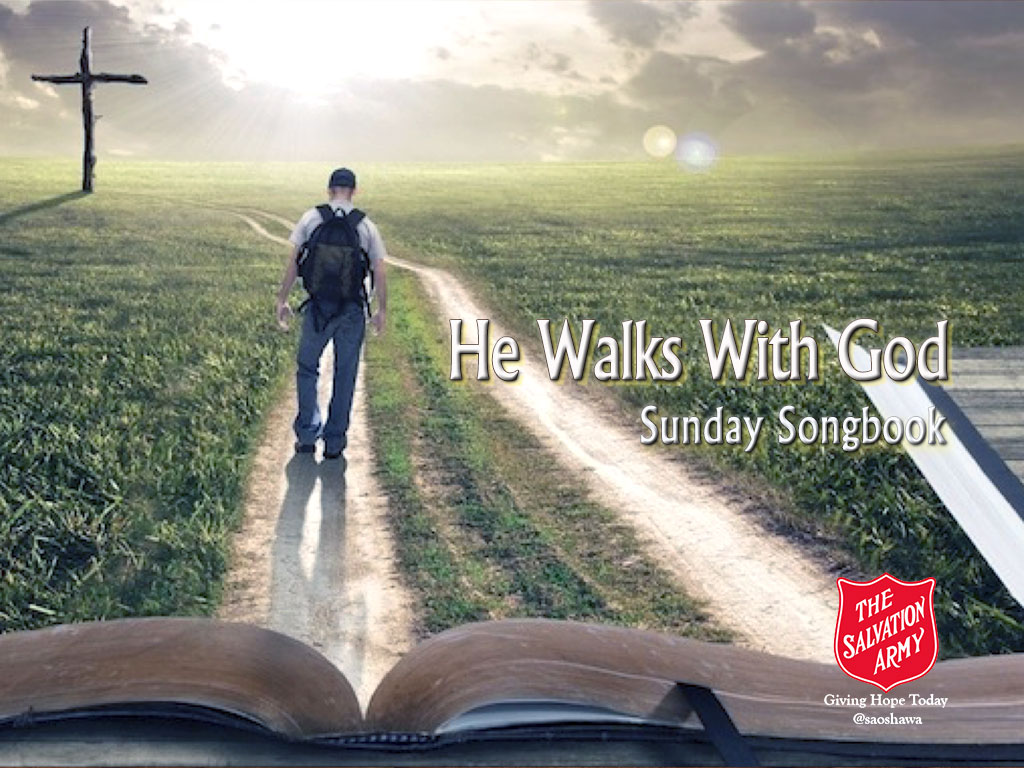He walks with God who speaks to God in prayer
And daily brings to Him his daily care;
Possessing inward peace, he truly knows
A heart’s refreshment and a soul’s repose.
He walks with God who, as he onward moves,
Follows the footsteps of the Lord he loves,
And keeping Him forever in his view,
His Saviour sees and His example, too.
He walks with God who turns his face to Heaven
And keeps the blest commands by Jesus given;
His life upright, his end untroubled peace,
Whom God will crown when all his labours cease.
Little is known about the author of this peaceful hymn, which brings a sense of the calm and steadiness of a daily life devoted to the Lord. Dorothy Ann Thrupp lived in Middlesex, England, from 1779 to 1847. She was the daughter of Joseph Thrupp, of Paddington Green. Her original words have been slightly altered in this version, as printed in The Song Book of The Salvation Army . Sadly, it does not appear in any other current hymnals, although Dorothy Ann Thrupp was not a Salvationist, having lived and died before TSA came into being! One wonders which inspired Salvationist discovered the hymn and ensured its use to bless others! It has been in our Song Books since at least 1931.
discovered the hymn and ensured its use to bless others Share on XMs Thrupp contributed hymns to four different publications for children. One of these was Hymns for the Young , of which she was the editor. Some of her songs appeared anonymously, some with the initials ‘D.A.T.’, and others under the nom-de-plume ‘Iota’. In 1836 and 1837 she published a booklet called Thoughts for the Day .
WORDS: DOROTHY ANN THRUPP; MUSIC: TUNE – ELLERS, BY EDWARD HOPKINS
S.A. SONG BOOK, 1987 EDITION, #580; 2015 EDITION, #756
REFERENCE: USAWEST.ORG; HYMNARY.ORG






